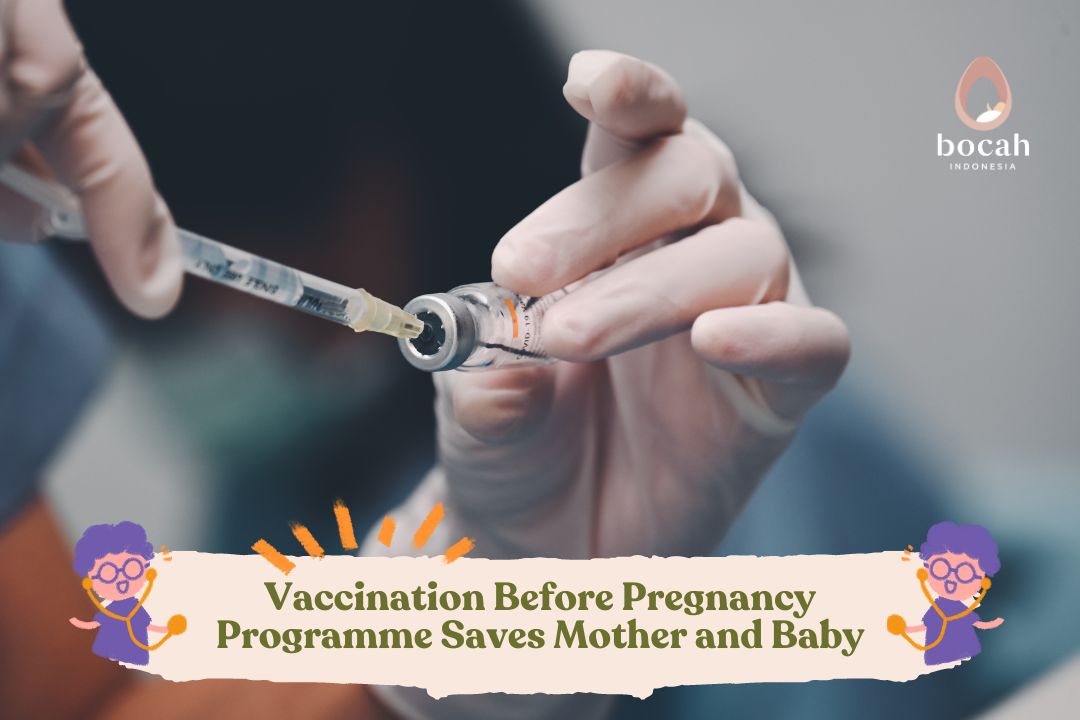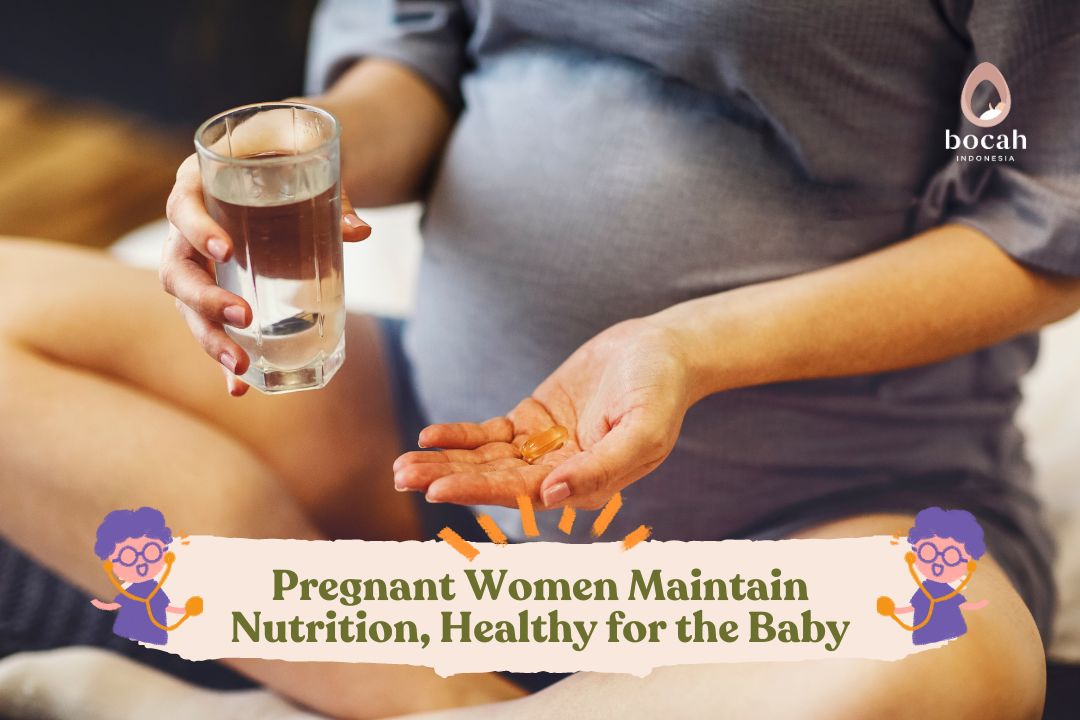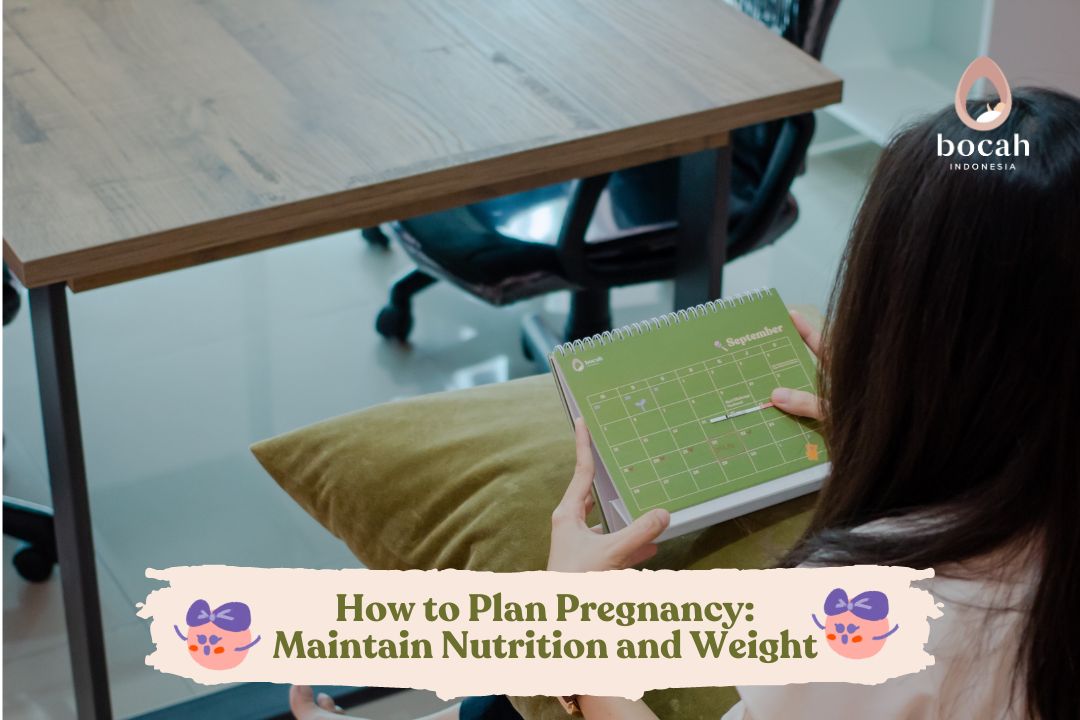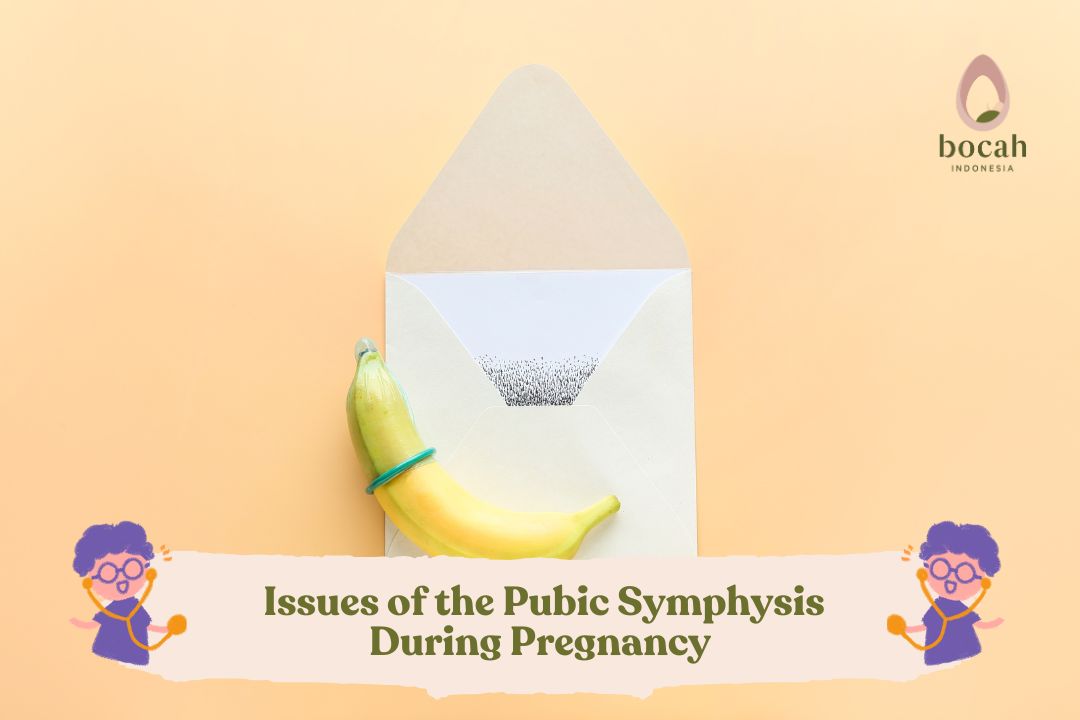Pregnancy Vaccination, Mother and Baby Saved

If you are planning to get pregnant, vaccination is an important thing to discuss with your doctor.
Vaccinations before and during pregnancy play an important role in protecting the health of both mother and baby. Maternal immunity is the first line of defence for the baby to avoid disease. There are three types of vaccines before and during pregnancy: live viruses, dead viruses, and toxoids or the chemical process of harmless proteins taken from bacteria.
Vaccinations before and during pregnancy are important to protect the health of the mother and baby.
Pregnant mothers should not get live virus vaccines because although the chances are small, they can be harmful to the unborn baby. Here are some recommendations for vaccinations before pregnancy.
Vaccines Before Pregnancy Programme
Certain preventable infections can be dangerous during pregnancy. Therefore, it is important that you have a blood test during your pre-pregnancy check-up to find out if you are immune to these diseases.
Tanya Mincah tentang Promil?
.If not, you should get vaccinated before getting pregnant. Be sure to delay pregnancy for one month as the shot is made from a live virus that can harm the baby.
If not, you should get the vaccination before getting pregnant.
1. Measles, Mumps and Rubella (MMR) Vaccine
When pregnant, mothers can get measles which can be dangerous for the foetus, Measles, a highly contagious disease caused by a virus. Symptoms begin with a fever, cough, and runny nose and are followed by a red rash a few days later.
.Mumps is also a contagious viral disease that causes the salivary glands to swell. If you are infected with either of these diseases while pregnant, your risk of miscarriage may increase and measles may also increase the chance of preterm labour.
.The rubella virus also called German measles shows flu-like symptoms often followed by a rash and can be dangerous during pregnancy. Up to 85 per cent of babies of mothers who contract the disease in the first trimester develop serious birth defects, such as hearing loss and intellectual disability.
2. Varicella (chickenpox) vaccine
Chickenpox is highly contagious and causes fever and an uncomfortable, itchy rash. A woman who gets chickenpox around the time of childbirth can pass on the life-threatening infection to her baby.
Not only that, about 2 per cent of babies of women who have chickenpox during the first five months of pregnancy have birth defects. The percentage includes deformities and paralysed limbs.
3. Influenza Vaccine
Centers for Disease Control and Prevention Centers for Disease Control and Prevention (CDC) recommends flu vaccination for all women who will become pregnant during flu season, which is November to March. The best time for a flu vaccination is before the flu season arrives which is in October or November.
Because flu strains change every year, the vaccine also changes. Also, while the flu vaccine is made from a dead virus, mums should avoid FluMist or nasal spray vaccines which are made from a live virus.
Mothers-to-be who get the flu, especially in the second half of pregnancy, are more likely than other women to suffer severe symptoms or complications such as pneumonia. Even a mild case of the flu can result in fever, headache, muscle aches, sore throat and cough.
Most of these symptoms last about four days. However, coughing and tiredness can last for two weeks or more.
4. Tetanus/Diphtheria/Pertussis Injections (Tdap)
The Tdap vaccine can be given at any time before or during pregnancy, although the more commonly used timeframe is between 27 and 36 weeks gestation. The vaccine is made with toxoid, making it safe to obtain while pregnant.
Tetanus is a condition of the central nervous system that causes painful muscle spasms and contractions. The bacteria that cause tetanus are usually found in soil and animal faeces.
The disease can enter the bloodstream through skin wounds, so consult a doctor if you have a deep or dirty wound. If contracted while pregnant, tetanus can lead to foetal death.
Diphtheria is a respiratory infection that can cause respiratory distress, paralysis, coma, and even death. Pertussis is a highly contagious bacterial disease that can be fatal in infants with symptoms of a severe cough. Pertussis
5. Hepatitis B vaccine
This vaccine is safe to give during pregnancy programme and also when you are pregnant. Especially if you are a health worker or live with someone who has the disease.
Hepatitis B is a viral infection that causes liver inflammation, nausea, fatigue, and jaundice of the skin and eyes. In some cases, it can lead to chronic liver disease, liver cancer, and death.
Mothers with hepatitis B can pass the infection to their babies during childbirth. Without proper treatment, the baby is at high risk of contracting serious liver disease as an adult.
The CDC recommends that all pregnant women get tested for hepatitis B. This is because there is a possibility of contracting the disease without realising it.
6. Hepatitis A vaccine
This vaccine provides protection against liver disease spread through contaminated food or water. Possible symptoms include fever, fatigue, and nausea.
Generally, the disease is not as severe as version B and most cases will not affect babies still in the womb. Although rare, hepatitis A can cause premature birth and infection in newborns.
Although the level of safety has not been confirmed, since the vaccine contains inactivated virus, the risk is usually low. If you are planning to travel to a developing country or have a job dealing with this virus in a laboratory, you should consult your doctor to discuss further.
This vaccine contains inactivated virus, so the risk is usually low.
7. Pneumococcal Vaccine
If mum has certain chronic conditions, such as diabetes or kidney disease, her doctor may recommend the pneumococcal vaccine, which protects against some forms of pneumonia. Although the potential harm to unborn babies is unknown, researchers believe that the risk is low.
Vaccines After Labour
This is the time to get any vaccines that you may not have been able to get during pregnancy or before pregnancy, such as MMR and chickenpox vaccines. Mums who are breastfeeding can get vaccinated according to the normal adult vaccination schedule.
If you are due for a Td booster and did not get one during pregnancy, the latest recommendation is to get a Tdap. This covers pertussis which is also known as whooping cough.
Mothers under 26 should also consider getting the HPV vaccine which helps protect against cervical cancer. The shot is not recommended during pregnancy as research has not determined its safety for the developing baby.
Watch Out for Vaccine Allergies
Serious reactions to vaccines are rare. Your doctor may recommend skipping certain injections if you have an allergy to the substances they contain. If you have an allergy, for example, to baker’s yeast, you should not get the hepatitis B vaccine.
Then, if you have a severe egg allergy, you should avoid the flu vaccination. Severe allergies to gelatin or the antibiotic neomycin should not get measles, mumps, and rubella or varicella vaccines.
If you are allergic to any injections, you should discuss alternative ways to prevent disease with your doctor. Stay healthy so that your pregnancy is safe. Read more pregnancy information on the Bocah Indonesia website.
This article has been medically reviewed by Dr. Chitra Fatimah.
Source:
- American College of Obstetricians and Gynecologists (2019). Hepatitis B and Hepatitis C in Pregnancy.
- Centers for Disease Control and Prevention (2019). Mumps. For Healthcare Providers.
- Centers for Disease Control and Prevention (2019). Pregnancy and Vaccination. Vaccines Before Pregnancy.
- Schwarz, R. Parents. What Vaccines Do You Need Before and During Pregnancy?
- WebMD (2020). Influenza Vaccine (Flu Shot and Nasal Spray) for Adults.
- WebMD (2019). Is It Safe to Get Vaccinations During Pregnancy?










